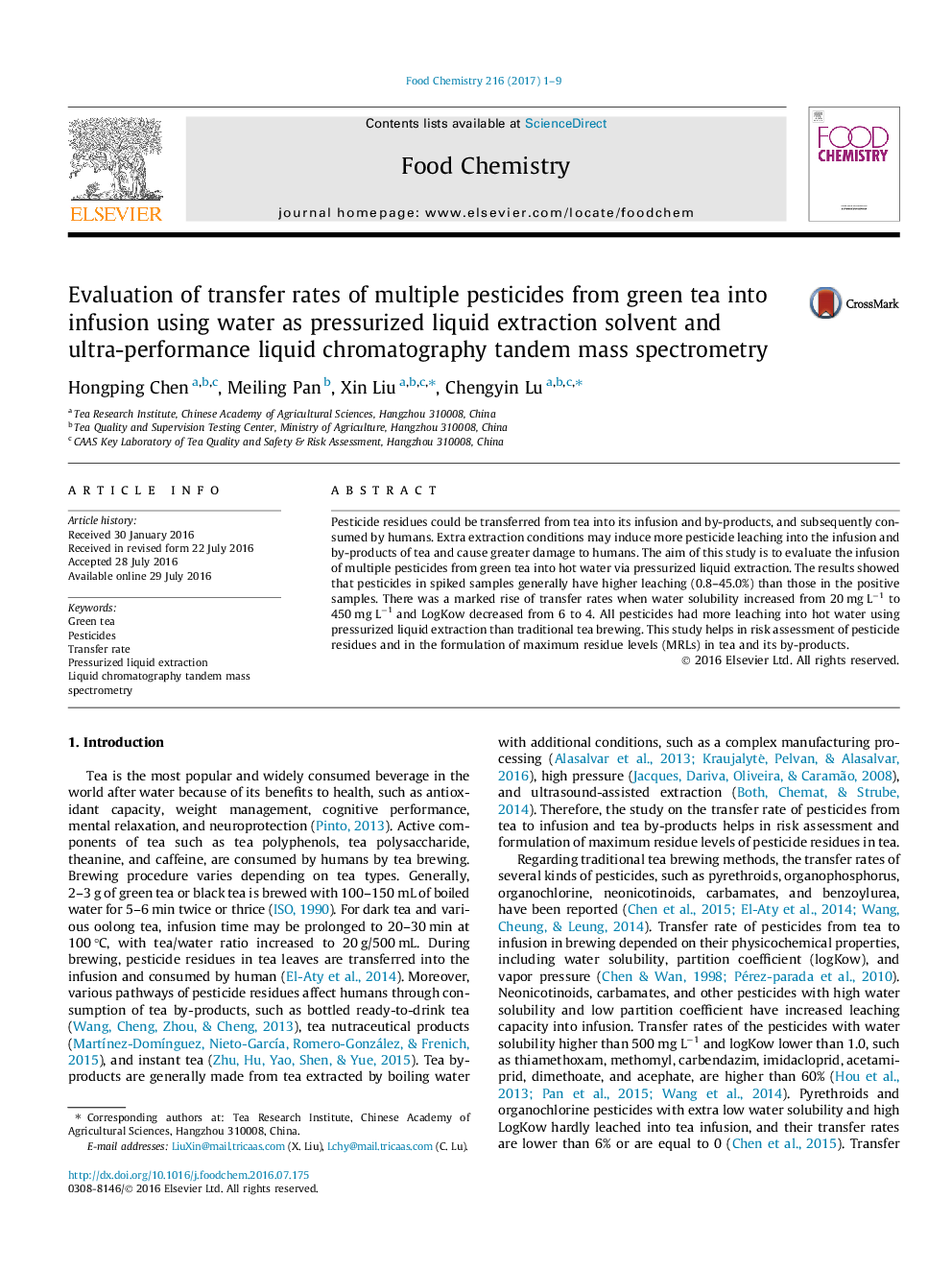| Article ID | Journal | Published Year | Pages | File Type |
|---|---|---|---|---|
| 1183043 | Food Chemistry | 2017 | 9 Pages |
•Several parameters of pressurized liquid extraction were investigated.•There was a marked rise when water solubility increased and LogKow descended.•Pesticides with water solubility ≥ 20 mg/L showed leaching rates of over 50%.•Pesticides had more leaching into infusion using water as PLE extraction.
Pesticide residues could be transferred from tea into its infusion and by-products, and subsequently consumed by humans. Extra extraction conditions may induce more pesticide leaching into the infusion and by-products of tea and cause greater damage to humans. The aim of this study is to evaluate the infusion of multiple pesticides from green tea into hot water via pressurized liquid extraction. The results showed that pesticides in spiked samples generally have higher leaching (0.8–45.0%) than those in the positive samples. There was a marked rise of transfer rates when water solubility increased from 20 mg L−1 to 450 mg L−1 and LogKow decreased from 6 to 4. All pesticides had more leaching into hot water using pressurized liquid extraction than traditional tea brewing. This study helps in risk assessment of pesticide residues and in the formulation of maximum residue levels (MRLs) in tea and its by-products.
